All dog owners want to prevent dogs from getting in the trash. One of the foremost reasons dogs are attracted to trash is their remarkable sense of smell. Dogs possess up to 300 million olfactory receptors in their noses, compared to a human’s mere six million. This heightened olfactory capability allows dogs to detect a myriad of scents, making garbage an intriguing treasure trove of aromas. Well, do not worry, as this article will give you great tips to stop your trash diving dogs and keep them away from the garbage!
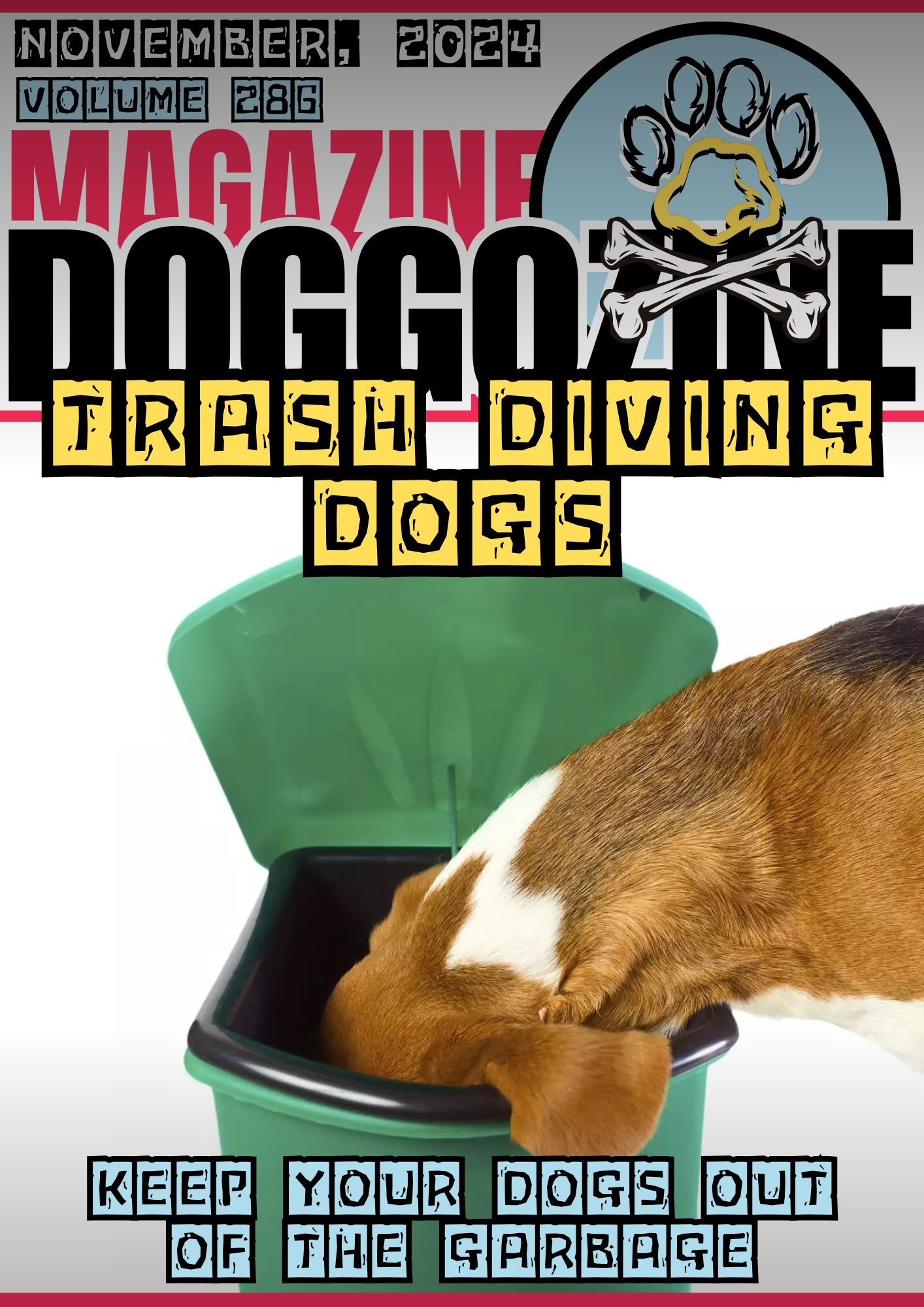
UNDERSTANDING THE APPEAL OF TRASH DIVING TO DOGS
The various food remnants found in trash cans—leftovers, discarded wrappers, and spilled liquids—produce an array of smells that can be irresistible to dogs, driving them to rummage through the garbage in search of a savory morsel. Additionally, the instinctual behavior of scavenging is deeply rooted in canine ancestry. Historically, dogs’ wild ancestors thrived through scavenging behavior, foraging for food scraps left by predators.
Instinctual Trash Diving Dogs
This natural instinct remains prevalent in domesticated dogs, who may view trash as a convenient source of food. Even the most well-fed pets may still find the allure of the trash can too tempting to resist, as they are unaware of the potential health risks involved in consuming spoiled or inedible items. The interaction with trash is not just about food; it also provides mental stimulation for dogs.
The curiosity and exploratory nature inherent in dogs lead them to investigate their environment, and a trash can can offer plenty of sensory engagement. The varied textures, smells, and even sounds of rummaging through the garbage can be enriching for them, regardless of whether they find anything edible.
Therefore, it is crucial for pet owners to understand that the attraction to trash stems from both biological and behavioral factors. Addressing this instinctual behavior is essential in promoting a safe environment for dogs and maintaining household hygiene.
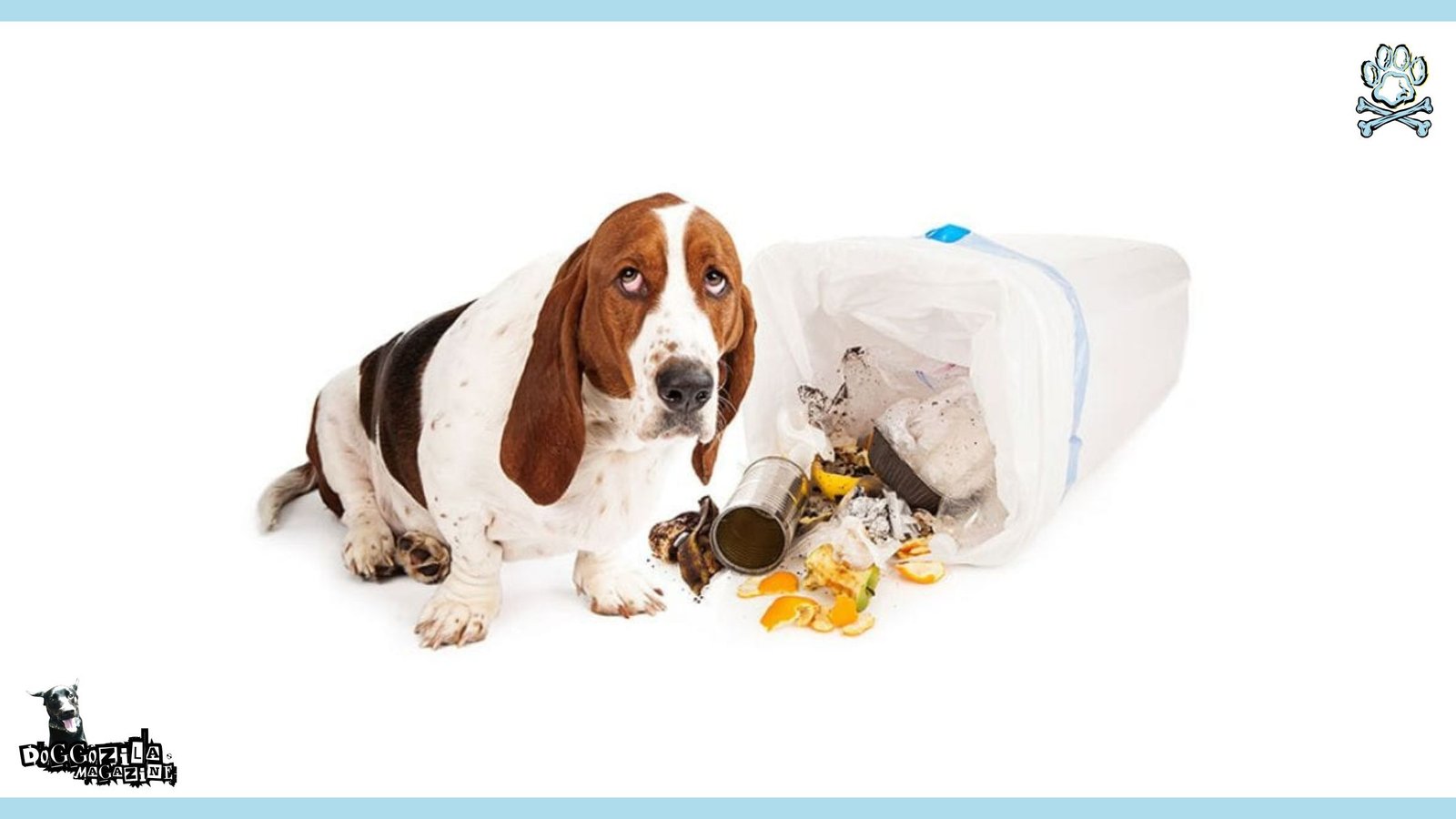
RISKS OF TRASH DIVING FOR DOGS
Many dog owners are often unaware of the numerous dangers that lurk within their household trash. When dogs engage in trash diving, they expose themselves to a variety of health risks that can lead to serious consequences.
Beware of Toxic Foods or Other Hazardous Materials
One of the most critical concerns is the potential dog consumption of toxic foods. Ingredients commonly found in household waste, such as chocolate, onions, garlic, and grapes, can be fatal to dogs. Chocolate, in particular, contains theobromine, a substance that dogs metabolize poorly, which can result in severe health issues including vomiting, diarrhea, and even seizures.
In addition to toxic food items, trash can harbor other hazardous materials that pose risks to dogs. For instance, discarded items such as glass shards, plastic wrappers, and sharp bones can lead to physical injuries. These materials can cause cuts or lacerations in the mouth, throat, or digestive tract, necessitating immediate veterinary intervention. Furthermore, dogs may ingest chemicals from cleaning products or food containers, which can lead to poisoning or long-term health problems.
Understanding the Dangers of Trash Diving Dogs
The consequences of dogs scavenging through trash are substantial. Aside from the immediate health threats, such behaviors can result in costly veterinary bills and, in dire cases, the loss of a beloved pet. It is essential for dog owners to understand these risks in order to take proactive measures.
Such steps include utilizing secure trash bins and storing waste out of pets’ reach. By comprehensively understanding the dangers associated with trash diving, owners can implement strategies to safeguard their dogs from harmful ingestion, thereby promoting their overall health and well-being.
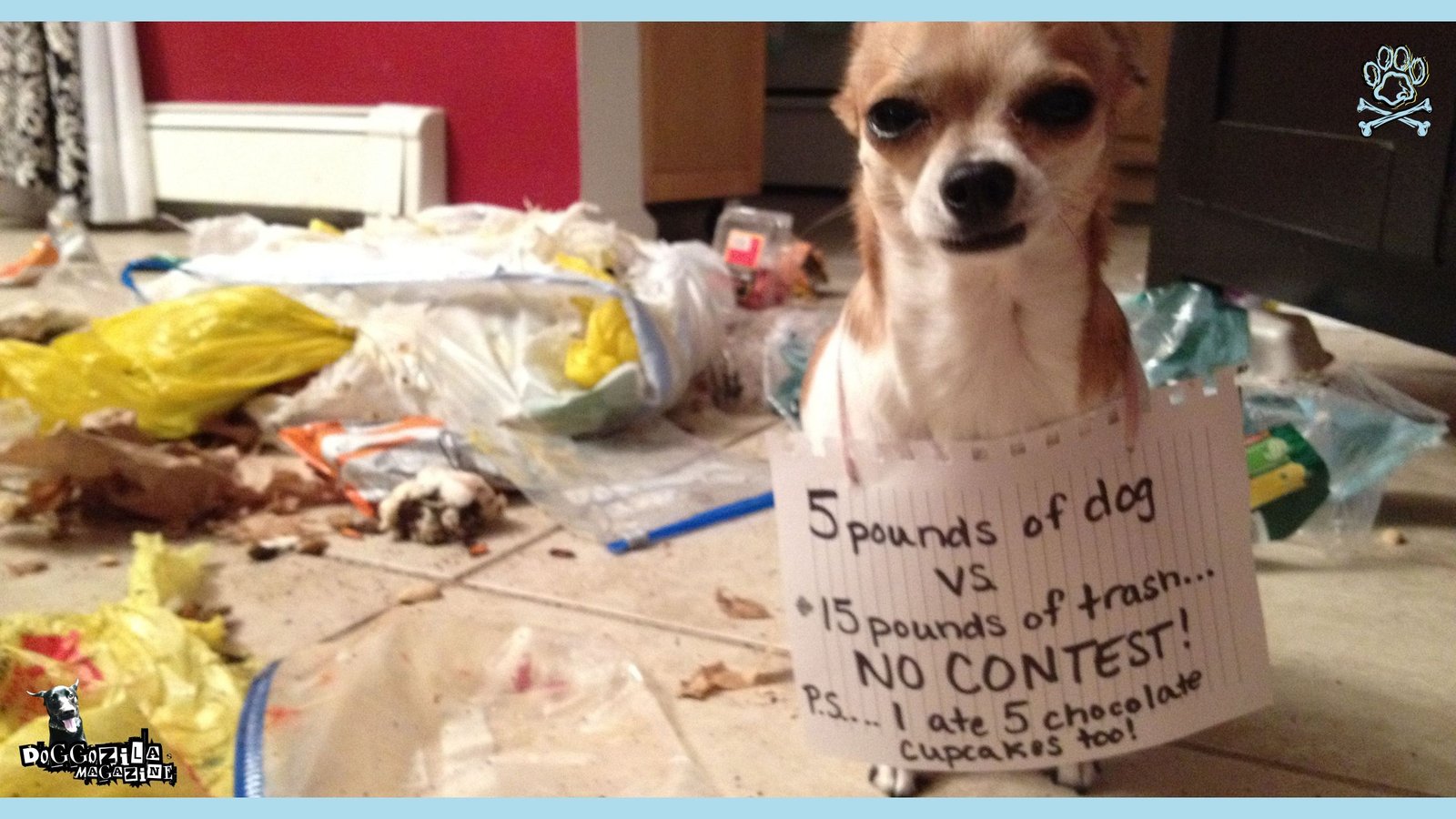
EFFECTIVE TRAINING TECHNIQUES TO DISCOURAGE TRASH DIVING IN DOGS
One of the most effective ways to prevent dogs from getting in the trash is through training. Training not only establishes boundaries but also reinforces good behavior. A key approach is using positive reinforcement techniques. This means rewarding your dog for desired behavior rather than solely punishing them for unwanted actions. For instance, when your dog chooses to stay away from the trash can, offer a treat or verbal praise.
Training Tools in Managing Trash Diving Dogs
Consistent positive reinforcement teaches your dogs that good behavior yields rewards, making them less likely to engage in trash diving in the future. Implementing specific commands can also play a crucial role in discouraging unwanted behavior. Commands such as “leave it” or “no” are effective tools in managing trash diving dogs.
Start by practicing these commands in a controlled environment, gradually introducing your dog to scenarios involving the trash. For example, when your dog approaches the trash can, firmly but gently use your chosen command. When they obey, reward them immediately. This reinforces the idea that ignoring the trash is beneficial.
Practical Tips and Positive Training Approach
Consistency in training is paramount. All family members should be on the same page regarding commands and rewards to ensure that your dog receives a uniform message about what is acceptable behavior. Inconsistency can confuse dogs and may lead to continued trash diving.
Make a conscious effort to always reward your dog for steering clear of the trash, as repetitive training sessions will solidify the behavior over time. Additionally, utilizing alternative behaviors can mitigate the desire to explore the trash.
Redirect your dog’s attention to a toy or engage them in a short play session whenever they show interest in the trash. This tactic not only distracts them from the temptation but also encourages more suitable activities. By incorporating these practical tips and maintaining a positive training approach, dog owners can successfully discourage their dogs from accessing the trash.
Related Article: Indoor Games to Play with Your Dog!

CREATING PHYSICAL BARRIERS TO THE TRASH
Preventing dogs from accessing trash is a vital step in maintaining a clean and safe home environment. One effective method is to invest in dog-proof trash cans specifically designed to keep canines at bay. These types of trash receptacles usually feature secure lids and locking mechanisms that minimize the risk of curious pets rummaging through the waste.
Dog-Proof Trash Cans
Brands like Simplehuman and PawHut offer options that blend functionality with aesthetic appeal, ensuring that your trash bin remains both practical and stylish. For those seeking budget-friendly alternatives, consider employing DIY solutions.
A simple yet effective approach could include placing heavy objects, such as bricks or stones, on top of regular trash can lids to prevent dogs from prying them open. Additionally, using bungee cords to secure the lid tightly can deter even the most determined furry friends from reaching their goals.
Positioning the trash can in a location that is difficult for dogs to access can also prove beneficial. For instance, consider placing it in a cabinet with a childproof lock or in a pantry. If neither option is feasible, utilizing tall, sturdy storage bins can serve as a temporary measure to safeguard your garbage.
Prioritize Dog Hygiene And Safety
It is essential to ensure that any trash storage solutions employed are not accessible to pets and are designed to withstand their curiosity or attempts to break in.
Ultimately, creating physical barriers to trash takes thoughtful planning and implementation. By utilizing dog-proof containers, securely fastening lids, and placing trash out of reach, pet owners can successfully reduce the likelihood of their canine companions scouring through the garbage.
Building an environment that prioritizes both hygiene and dog safety is crucial for dog owners. A proactive approach not only protects your home but also establishes healthy habits for dogs.
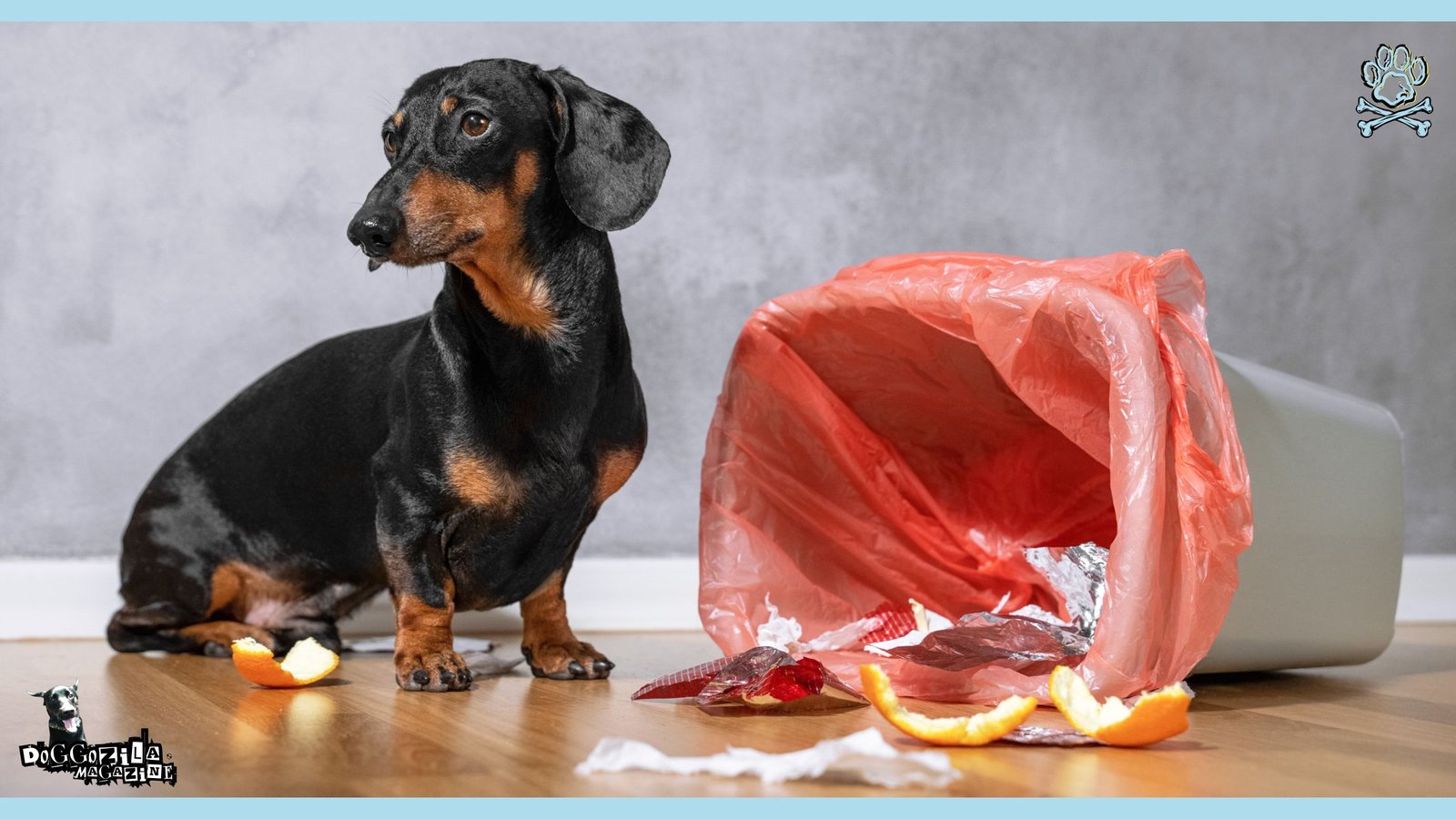
PROVIDING ALTERNATIVES TO KEEP DOGS ENGAGED
Providing adequate alternatives for dogs can significantly reduce their inclination to explore the trash. Engaging dogs in productive activities can redirect their natural instincts for scavenging. Incorporating physical and mental stimulation into their daily routines is essential for their overall well-being.
Interactive Dog Toys for Cognitive Skills
One effective way to keep dogs occupied is through interactive toys that challenge their cognitive skills. Puzzle feeders, for instance, are excellent options as they require dogs to think critically to access treats. These toys not only divert their attention from the garbage but also promote slower eating, which can assist in digestion. Additionally, rotating toys can maintain their interest.
By introducing a ‘toy of the week’ concept, dogs remain engaged with fresh and stimulating options, minimizing the chances of rummaging through the trash. Furthermore, daily exercise is crucial for a dog’s physical health and mental stimulation. Regular walks or play sessions instill a sense of purpose and satisfaction.
Challenge Your Dog Physically by Playing Fetch or Tug-of-War
Engaging in activities such as fetch or tug-of-war can also channel their energy positively. Investing in dog agility equipment or creating an obstacle course in the backyard can provide a fun way to challenge your dog physically while reinforcing the bond between owner and pet.
Consider also incorporating training sessions into the daily routine. Teaching new tricks or reinforcing obedience commands can keep dogs mentally stimulated. These training sessions can be particularly beneficial when combined with reward-based systems, where dogs receive treats or praise for their efforts. This method not only keeps them distracted from the trash but also enhances their discipline and focus.
Through these alternative activities, pet owners can create an enriching environment for their dogs, satisfying their natural curiosities and reducing their urge to explore the trash, thus leading to happier, healthier pets.
Related Article: How to Teach Your Dog to Fetch!
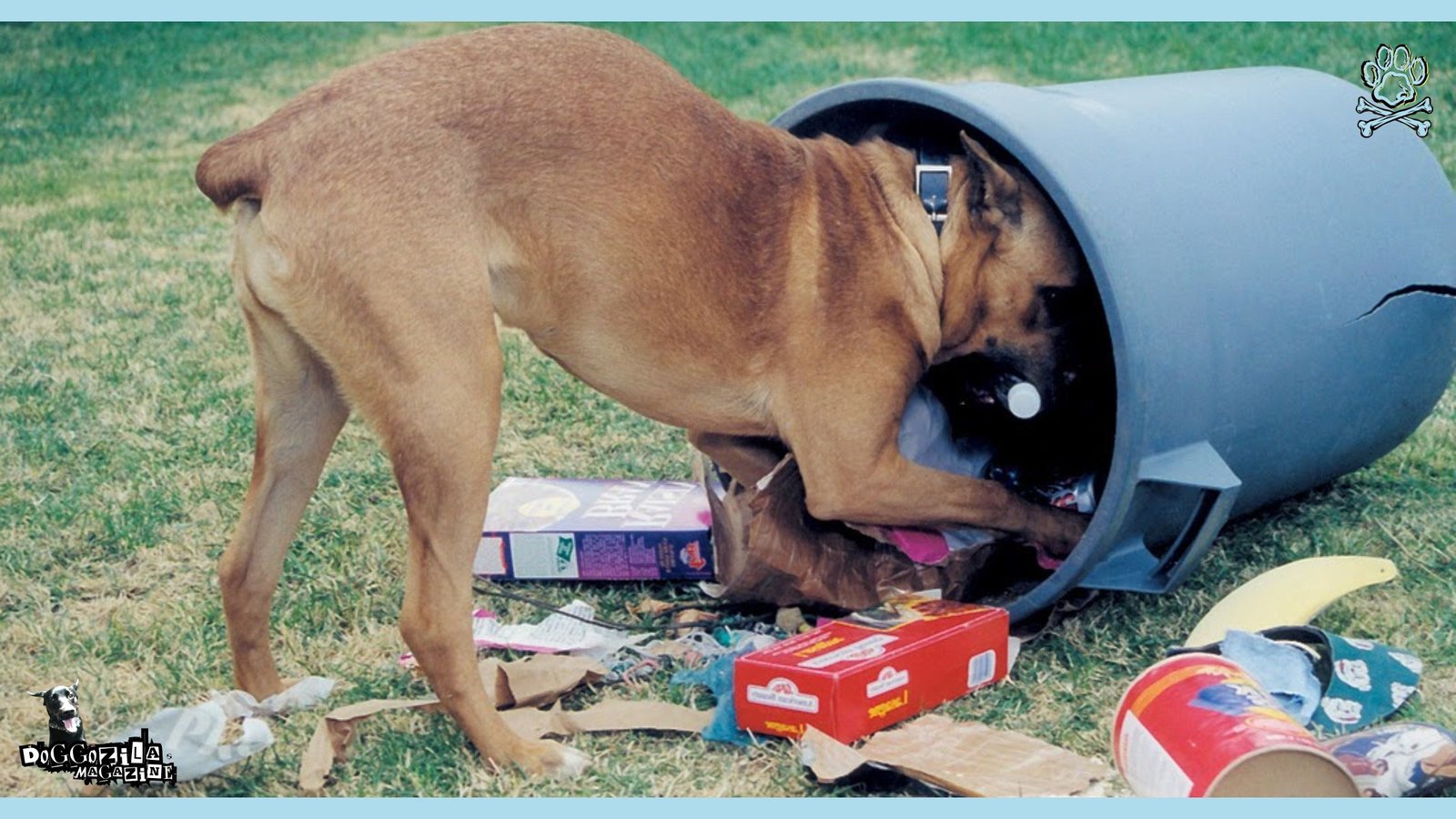
ROUTINE MAINTENANCE AND GARBAGE DISPOSAL TIPS
Proper trash management is paramount in preventing dogs from getting into the garbage. By implementing effective waste separation and disposal practices, pet owners can significantly reduce the likelihood of their dogs rummaging through trash bins.
Composting, Recycling and General Waste
One of the first steps is to separate waste into appropriate categories: composting, recycling, and general waste. Composting organic materials not only minimizes trash but also provides a sustainable way to dispose of food scraps and yard waste. It’s essential to ensure that the compost bin is locked or out of the dog’s reach to prevent any unwanted scavenging.
Recycling is another responsible disposal method, allowing pet owners to reduce the volume of waste sent to landfills. Items such as plastic bottles, cardboard, and aluminum cans should be collected separately for recycling. However, it’s essential to ensure that these materials are securely stored, as certain packaging can be attractive to dogs, increasing the temptation to dig through the recycling bin.
Try to Keep the Trash Away from Your Dog
When it comes to hazardous materials, it is crucial to keep items such as cleaning supplies, chemicals, and batteries secured and well out of your dog’s reach. These materials can be harmful to dogs and should be disposed of according to local regulations, ensuring safety for both pets and humans.
Timing also plays a crucial role in effective garbage disposal. Taking out the trash at times when your dog is engaged in a different activity, or after they have been exercised, can help minimize their chances of accessing the trash. By establishing a routine of securely closing trash cans and regularly disposing of waste, pet owners can considerably curtail the opportunities for their dogs to explore undesirable areas.

When to Seek Professional Help for Excessive Trash Diving Dogs
While occasional scavenging through the trash may be a common behavior among dogs, excessive trash diving can signal underlying issues that may require professional intervention. Dog owners should be vigilant for signs that their dog’s interest in rummaging through the garbage has escalated beyond normal curiosity.
One prominent indicator is if the behavior occurs frequently and relentlessly, suggesting a compulsive tendency rather than a one-off act of mischief. Another sign that may warrant concern is if the dogs exhibits anxiety or stress-related behaviors associated with trash diving. If you find your furry friend in the trash consistently or displaying anxious behaviors, such as pacing, whining, or destructive tendencies when left alone, it is advisable to consult a veterinarian or a licensed dog trainer.
Try to Recognize Excessive Trash Diving in Dogs
These professionals can help identify if the trash diving is linked to anxiety, fear, or insufficient mental stimulation. Additionally, pay attention to whether this behavior is interfering with the dog’s quality of life. For instance, if scavenging has led to health issues, such as gastrointestinal distress or injury, it is crucial to seek assistance immediately.
A professional can conduct a thorough health assessment and suggest necessary modifications to their environment or lifestyle, including providing toys and activities that mentally engage and stimulate the dog.
Moreover, consider the context of the behavior. If your dogs are diving in the garbage because it is bored and there are limited opportunities for exercise or play, addressing these environmental factors with the help of a trainer could significantly reduce the likelihood of further incidents. By recognizing excessive trash diving in dogs as a possible behavioral concern, you can take proactive steps to ensure your dog’s well-being and prevent potential health hazards.









